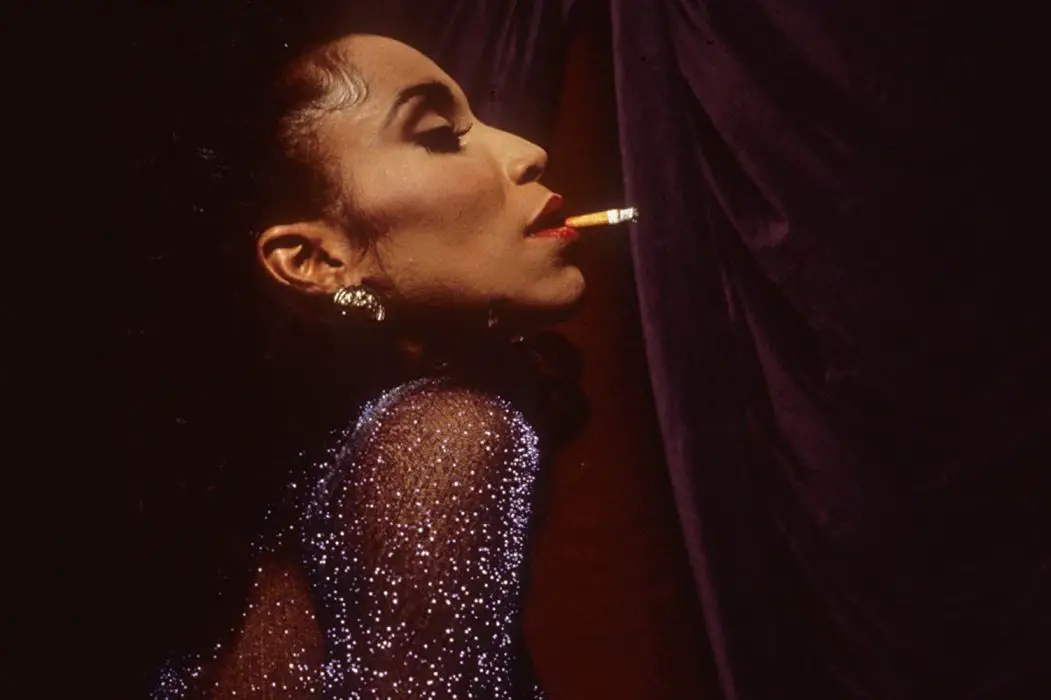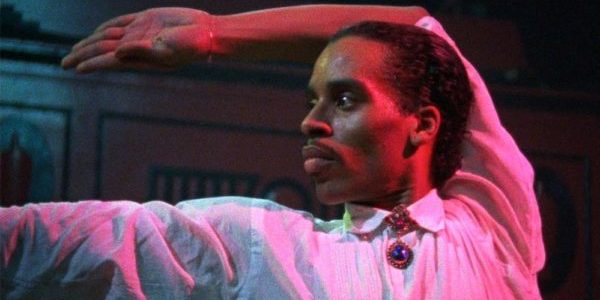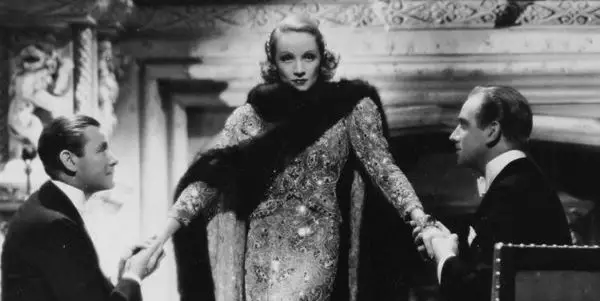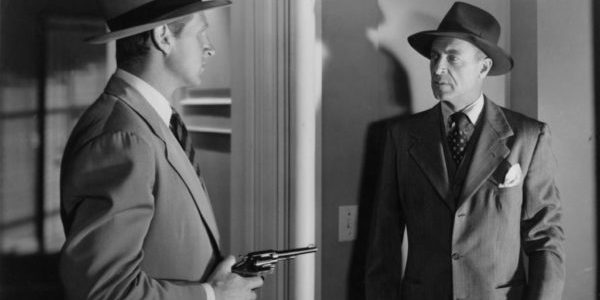Video Dispatches: PARIS IS BURNING, ANGEL & TRAPPED

Midwesterner, movie lover, cinnamon enthusiast.
Video Dispatches is a regular column covering recent home video releases.
Paris is Burning (1990, Jennie Livingston) – Criterion Collection

Criterion’s release of the new restoration of Jennie Livingston’s Paris is Burning has been long-awaited. The documentary, which catalogs the Black and Hispanic drag ball scene of 1980s New York City (the same scene depicted in FX’s Pose), is one of the essential American films of the 1990s.
Through interviews and fashion show footage, we see how the various competitions and houses created both a community for othered queer folk (the AIDS crisis is a heavy cloud over the scene) and an outlet for creativity, be it designing, emceeing, vogueing or otherwise.
In Michelle Parkerson’s appended essay, she writes, “Realness is Paris’s manifesto. Watching the exacting performances and outrageous mimicry of the American dream paraded on the ballroom floor, you witness brilliant works of individual survival and urban camouflage.” One of the most touching aspects of the film is hearing the performers articulate that mimicry of the American dream — how the ball provides a place to both subvert it and fantasize about it.
What’s wild to experience this film two decades removed is to see how well it’s aged despite covering folk for whom the vernacular is always changing. Livingston’s imprint on documentary filmmaking is also apparent. Parkerson writes that the film expanded the filmmaking mode, “It is not only a politically astute, historically vital record of lives not typically given such a platform, in a particular place and time, but an embodiment of the axiom that great documentaries must also be good dramas.” Just last year, this debt was clear in Elegance Bratton’s Pier Kids, a profile of homeless queer youth in New York City.
Criterion’s release does Livingston and fans no short shrift, including an archival commentary and episode of The Joan Rivers Show, extra footage and a new conversation with Livingston and community members where they look back on both the experience making the film and the scene, more largely.
Angel (1937, Ernst Lubitsch) – Kino Lorber

A couple of years after her legendary run with director Josef von Sternberg, Marlene Dietrich teamed up with another European immigrant filmmaker, Ernst Lubitsch, in Angel, an unusually dramatic outing for the filmmaker best known for his comedic work. And the tone here, much like his more known films, is still perfectly struck, meditative yet light.
Dietrich plays a former call girl cum comfortable but bored housewife of Herbert Marshall’s British diplomat, who succumbs to an overseas extramarital affair. She spends the film dealing with her moral quandary — to keep the affair from her husband and maintain comfort, or continue pursuing a more interesting life. Dietrich’s performance, her adroit and opaque dance between morality and immorality is lovely.
Kino Lorber have included a commentary by Joseph McBride, author of “How Did Lubitsch Do It?”. For the most part, the track stays big-picture, drawing performances and techniques out to a larger discussion of Lubitsch’s oeuvre, such as noting that Angel’s dominant aesthetic mode was the beginning of Lubitsch’s move toward a cinema of the “invisible camera,” eschewing flash or noticeable camera moves for the sake of direct, immediate storytelling.
Trapped (1949, Richard Fleischer) – Flicker Alley

To tell you the truth, by the end of Richard Fleischer’s late noir, Trapped, I wasn’t exactly sure what was going on. I understood the basic components — a convicted counterfeiter played by Lloyd Bridges agrees to help the U.S. Department of Treasury in exchange for prison release — but the film’s twists and turns became secondary to watching Fleischer play with light and shadow, as well as physical spaces, particularly in the final train car set piece.
The film isn’t widely known, existing primarily as a public domain obscurity known mostly because of Fleischer’s attached name — exactly why the Film Noir Foundation wanted to restore it (the restoration presented here). It reminded me most of Phil Karlson’s notable noir The Phenix City Story, which had yet to come out. Both films start with a procedural-like non-fictional passage, here regarding the Dept. of Treasury, and both are led by wirey-framed men typical of B noirs.
As is typical of Flicker Alley, this release of Trapped is truly deluxe. Between the 24-page booklet and the supplement, “Freeing Trapped,” the release gives ample context to the film’s star and contemporaneous release, while the segment particularly focus on Fleischer goes a long way to explore the varied career of a director that couldn’t be seen from Trapped’s vantage. Elsewhere, it’s great to see Flicker Alley giving commentary work to Julie Kirgo, who I’ve known as a former contributor to Twilight Time releases, who have since stopped releasing home video discs. My only gripe is, seeing an Imogen Sara Smith essay on the film posted on Flicker Alley’s website, that it wasn’t included in the booklet, whether it had to replace existing content or supplant it.
Does content like this matter to you?
Become a Member and support film journalism. Unlock access to all of Film Inquiry`s great articles. Join a community of like-minded readers who are passionate about cinema - get access to our private members Network, give back to independent filmmakers, and more.












